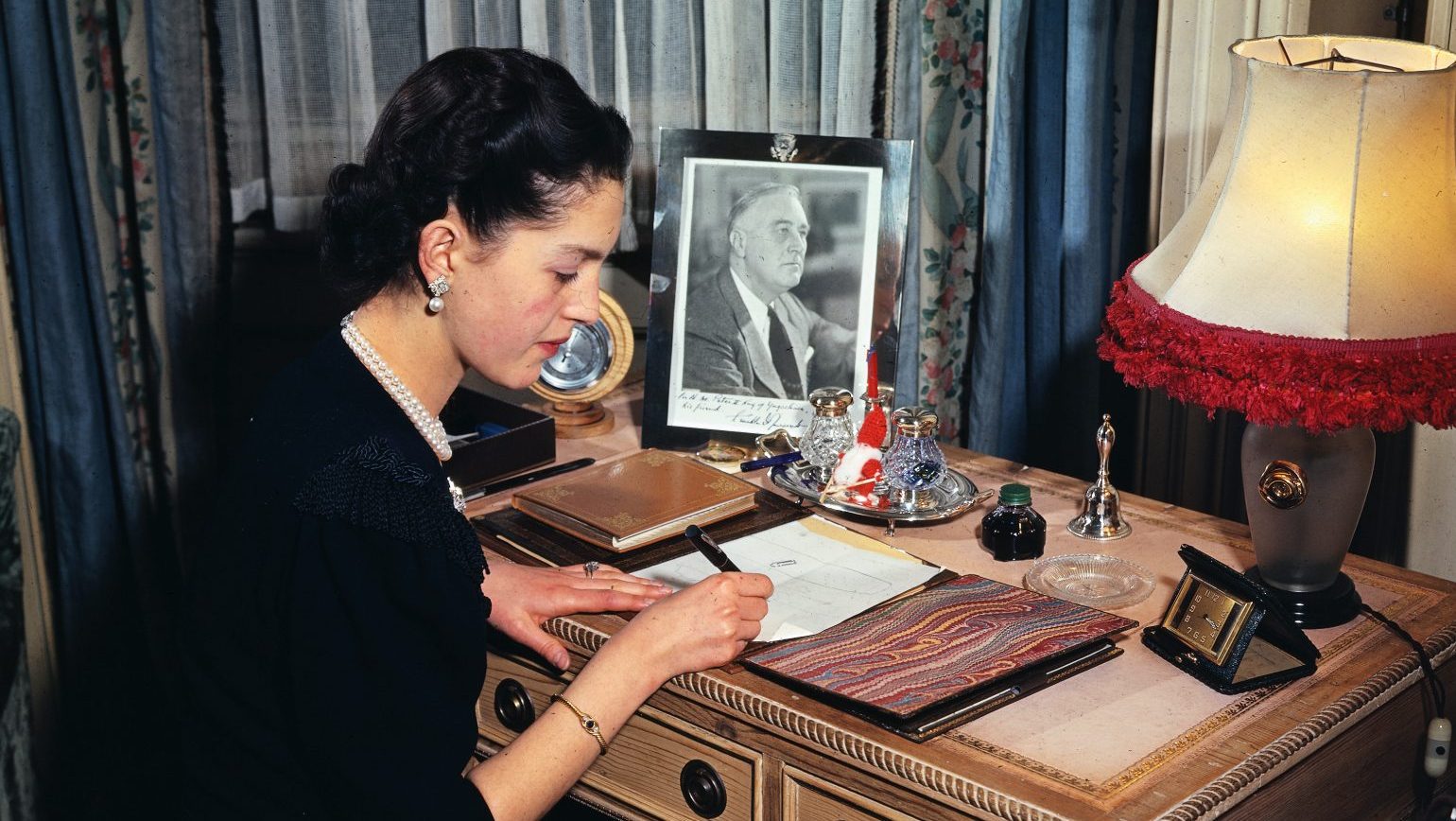On July 17 1945, London was still coming to terms with the end of the war. Nine weeks on from the German surrender, sandbags were still piled around
doorways but a cautious normality was returning nonetheless.
In Mayfair, Claridge’s continued to provide a haven for the aristocracy just as it had during the conflict, and on that hot summer’s day it played host to a remarkable royal occasion.
In Suite 212, Queen Alexandra of Yugoslavia had begun her confinement ahead of the birth of her first child with King Peter II – a refugee in London
following the German invasion of his kingdom in 1941 and determined that his child should be born on Yugoslav soil. With the approval of Winston Churchill and King George VI, their suite was made a temporary exclave of Yugoslavia and had a box of earth from the homeland placed beneath the bed.
While the Queen had chosen the location, any hopes she had of an intimate
family occasion proved unfounded. Hearing a hubbub of conversation from
the adjacent sitting room, she asked her husband who else was in the suite.
“They are representatives of the royal government with two representatives of the Tito government,” he explained. “They must be present at the birth.”
While she managed to insist the half-dozen men remained out of sight behind the open bedroom door while Crown Prince Alexander was born, the incident proved how nothing in the life of Alexandra, Princess of Greece and
Denmark, Queen of Yugoslavia, was ever truly her own.
Even the most ardent republican can appreciate the tragedy of Alexandra of Yugoslavia. The 20th century saw the abolition of a slew of European monarchies that cast dozens of erstwhile royals from castles and palaces into a more everyday world. Most retained many privileges but their lives were often blighted by bitterness and an almost existential bewilderment. Few, however, suffered at the mercy of 20th-century geopolitics like Alexandra.
Her travails had begun before she was born. When her father Alexander, King of the Hellenes, died of sepsis at the age of 27 in October 1920 after being bitten by his pet monkey, he left behind a pregnant wife, a succession crisis that became a coup d’état and political chaos that endured until Alexandra was three years old and her mother was advised to leave the country.
Taken in by relatives in Florence, Alexandra’s childhood years in Italy would prove to be the happiest and most settled of her life. Her adolescence was a
rootless one spent criss-crossing Europe, beginning at an English boarding school that she loathed and where she contracted tuberculosis, leading to a long spell in a Swiss sanatorium. She completed her schooling in Paris, after
which Alexandra and her mother moved into a villa called the Garden of Eden on the Venetian island of Giudecca.
Despite this peripatetic existence, Alexandra’s royal blood made her a prime candidate for expedient marriage. She “came out” into society at a Paris ball at 17 shortly after a proposal from King Zog of Albania, 25 years her senior,
was rejected as politically unsuitable – her relief tempered by confirmation she was but a pawn in an international game she would never truly understand.
“I wondered,” she wrote later in her memoir, “whether my destiny might only bring its happiness if I could fall in love and gain permission to marry some ‘ordinary’ middle-class man who would not want a social life but would forever be glad to be at home just with me and our children.”
By 1940 the 19-year-old princess was on the move again, the Greco-Italian War forcing her and her mother from Venice to Athens. They trained as nurses until the German invasion the following year saw them smuggled to Crete in the freezing bomb bay of a military aircraft before being moved on to Egypt, South Africa and finally London.
It was at an officers’ tea dance at the Grosvenor Hotel in 1942 that Alexandra
met King Peter II of Yugoslavia. Two years her junior and an undergraduate
at Cambridge University, Peter was a welcome contrast to the succession of
insufferably dull British officers vying for her attention. He’d become king at 11 after his father’s assassination, his uncle acting as Regent until a March 1941 coup placed the bewildered 17-year-old on the throne. Barely three weeks later, the Germans invaded, forcing Peter into exile with other displaced heads of state in London.
The two refugee royals bonded instantly and, after two years of political
wrangling and fevered debates about royal protocol, married at the Yugoslav
Embassy in London wearing the crowns of a nation they would never see.
Dividing their time between Claridge’s and a tumbledown house in Egham, Surrey, the couple waited out a war whose end would hasten Peter’s restoration to his throne and allow their lives to truly begin. In November 1945, however, Tito’s Constituent Assembly passed a resolution declaring Yugoslavia a socialist republic and banned its erstwhile royal family from returning home.
The abolition of his throne was a blow from which Peter never truly recovered. With his assets seized, money soon became tight, a situation not improved by a move to the US where disastrous investments of his remaining capital forced the sale of Peter’s Order of the Crown of Yugoslavia and Alexandra’s jewellery to pay off debts.
The 1950s and 1960s became a succession of financial struggles, marital separations, reconciliations and, for Alexandra, a miscarriage, an eating
disorder and three suicide attempts. The publication of her gossipy ghostwritten 1954 memoir For Love of a King, a book on which she only agreed to collaborate for the money, saw her shunned by most of the European aristocracy and, five years later, when penury prodded her into publishing a biography of her cousin, Prince Philip, the Duke of Edinburgh, the previously supportive British royal family cut all ties.
After Peter’s death in 1970, Alexandra lived quietly at the Garden of Eden where the once much-courted princess cut a lonely figure, her glitzy social circle reduced to two women who ran a lampshade shop nearby. Her mental
health declined and she was rarely seen in public. Locals whispered about the woman heard sobbing behind the high walls of her garden.
On the face of it, sympathy for a woman born into privilege who married a king might feel hard to justify, yet Alexandra’s life was a tragedy of epic proportions. She never found a place in the world and was never in control of her own destiny. Security, both financial and emotional, remained elusive and she had no agency over any aspect of her life, not even the birth of her only child. Alexandra’s was a life in which genuine contentment remained permanently out of reach.
Her autobiography opens with an early memory of running into her mother’s bedroom in Florence and being swept up in a joyous embrace.
“A funny, delicious little feeling squiggled through me,” she wrote, “the
feeling of pure happiness a small girl of five can get when she knows she is loved and secure.”




